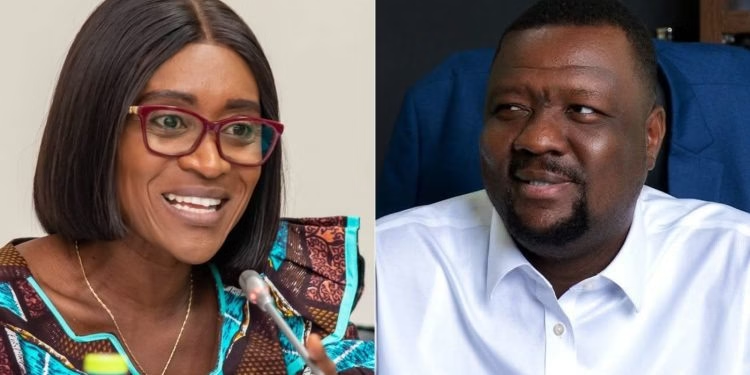PAC Chair, DVLA boss clash over data privacy in digital number plate rollout

The Chairperson of Parliament’s Public Accounts Committee (PAC), Abena Osei Asare, and the Chief Executive of the Driver and Vehicle Licensing Authority (DVLA), Julius Neequaye Kotey, were involved in a heated exchange during Monday’s committee sitting over the planned rollout of digital vehicle number plates.
The confrontation stemmed from concerns raised by the PAC Chair about privacy and data protection under the DVLA’s new digitisation initiative.
The Authority is introducing number plates embedded with Radio Frequency Identification (RFID) chips, which Mr. Kotey said would enhance security and curb vehicle-related crimes.
Explaining the concept to the committee, Mr. Kotey noted that the RFID-enabled plates would make it “very difficult for external entities to tamper with or replicate” vehicle information.
However, Mrs. Osei Asare questioned the potential exposure of private information, particularly regarding whether vehicle owners’ surnames would be displayed on the new plates.
“Because in putting out somebody’s security out there, a bad person can also get hold of that,” she said, demanding clarity on the specific data elements that would appear on the plates.
In his response, the DVLA boss assured the committee that the system would comply with Ghana’s Data Protection Law, stressing that the digitalisation process “will digitalise existing information without altering the basic format.”
Pressed further on whether names would appear, Mr. Kotey replied, “It depends on what the law says; we’ll go by it.”
That answer drew an immediate rebuke from the PAC Chair, who interjected sharply: “You don’t tell me it depends on what the law says. You are doing it. So you should be able to tell us that the law says ABCD. I’m asking a specific question: is it going to have the user’s surname on the number plate?”
Mr. Kotey then clarified that “we don’t put names on number plates,” but the Chair quickly countered, citing examples of personalised plates already in circulation.
“People pay to have their names on number plates, and you sit here as the DVLA boss to tell me you don’t put names on number plates? That’s not accurate,” she said.
The exchange momentarily grew tense when the DVLA chief appeared to dismiss the relevance of her question. He later withdrew the remark, explaining that his point was that standard plates do not bear names “unless issued as personalised plates.”
Mrs. Osei Asare accepted the clarification but insisted that the Committee’s scrutiny was motivated by public interest and the need for transparency in the digital number plate project.
She concluded that the PAC would continue to demand detailed accountability from the DVLA on both the procurement process and the data security framework underpinning the new system.

